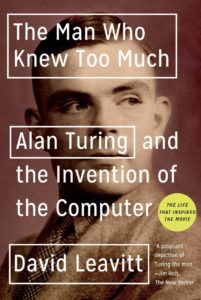Lecture Date: January 19, 2023
The AES Corporation Lecture

Although Alan Turing is now considered one of the great minds of the twentieth century, his achievements in codebreaking, mathematical logic, and computer science went unrecognized for decades after his death. In part this was because much of Turing’s work for the government was, at the time, classified (some remains classified today), in part because Turing was unapologetically gay in an age marked by Cold War paranoia and governmentally sanctioned homophobia, and in part because other computer scientists, including John Van Neumann, were credited for work that was actually his. Most contemporary writings on Turing focus on his private life and probable suicide, his heroic contribution to Allied codebreaking in World War Two, or his authorship of foundational essays that posited, for the first time, the idea of the computer and raised the complex question of machine intelligence. Yet can these different facets of Turing’s life really be separated? To what extent did Turing’s personal experience inform his work as a mathematician, an engineer, a philosopher? In sum: what made Alan Turing Alan Turing?
Further Reading Resource List provided by CRRL
Speaker: David Leavitt

David Leavitt’s works of fiction include the novels The Lost Language of Cranes, The Indian Clerk, and Shelter in Place as well as three short story collections. He is also the author of two nonfiction books, Florence, A Delicate Case and The Man Who Knew Too Much: Alan Turing and the Invention of the Computer. He lives in Gainesville, Florida, where he is Professor of English at the University of Florida and editor of the literary journal Subtropics.